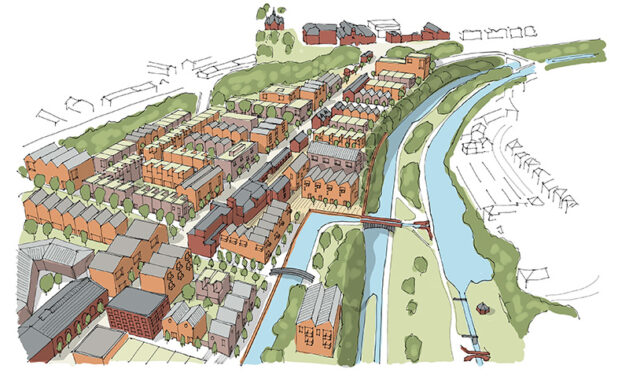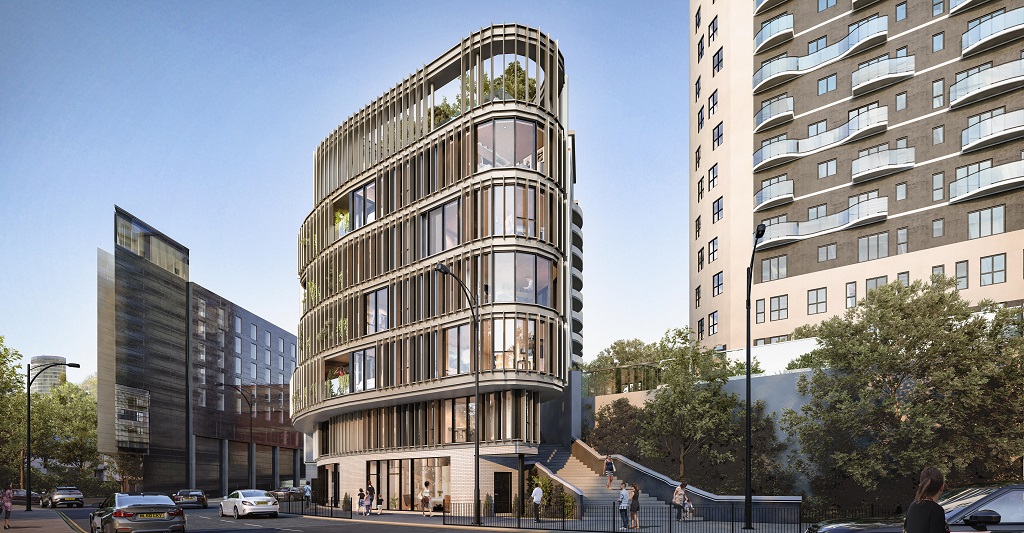Commentary
Heritage survey or a hunch – aiming for better yields in the Midlands
In Birmingham, like many regional cities, we often talk about the need to ‘unlock development’, yet some of our most strategically located plots remain stubbornly stuck. These are sites that could define the next chapter of urban regeneration, but too often they sit in limbo as ambition collides with uncertainty, writes Matthew Vaughan, practice director at Donald Insall Associates.
The former surface car parks on Great Charles Queensway are a particularly resonant example: a post-war site on a key city block that lay dormant for almost 50 years, only now coming into use with sensitively designed new blocks by Moda Living which I’m excited to see finally delivered. But this is not an outlier, it’s part of a wider regional pattern.
Prime city-centre plots in Birmingham and beyond stay on hold because development ambitions collide with worries around risk to investment and unknown constraints downstream. And too often, schemes become unviable after acquisition, because unexpected heritage conditions emerge, local communities mobilise, or structural complications appear, which could easily have been navigated had the right conditions and price been negotiated in the first place.
Of course, for this to happen – knowledge is power. We have many examples where clients have approached us because they had misunderstood the listing of a site, most often, thinking only the façade was listed where it was in fact the whole building. We were delighted they came, but such misunderstandings can have a dramatic impact on value. In today’s regional market, where margins between viable and non-viable schemes are often razor-thin, it’s straightforward and essential to clarify these issues well before acquisition.
Commissioning a condition survey and assessment of significance before purchasing a site isn’t box-ticking; it’s early-stage due diligence that can save millions. Knowing what you must keep often reveals how much more you can build. But more than this, heritage creates a sense of place and individuality that can’t be achieved solely through new-build. A site’s past isn’t dead weight. It’s latent value.
There are developers who understand this, one obvious example being Urban Splash, which has built an entire business model around seeing opportunity where others see obstruction. At Port Loop in Edgbaston, it retained factory blocks close to the canal, not because they were listed, but because Splash recognised their power as identity anchors for both place and community.
At Donald Insall Associates, we worked with BPN Architects on the Murdoch and Pitman Chambers project which was recently granted funding by WMCA to convert into a hotel. Our early role was to work with the team to help unlock a viable scheme for the Grade two star-listed buildings, testing what level of height and density was needed for any new elements to cross-subsidise essential fabric repairs, ensuring the heritage asset could be retained. In a positive departure from typical practice, the local authority, as landowner, chose to sell the site on a cost-quality basis, prioritising the right partnership and outcome over a simple highest-bid sale. It’s a model that helped de-risk delivery and demonstrates how early alignment between heritage, viability and design quality can unlock stalled plots.
Of course, Birmingham and the Midlands are host to an abundance of mid-century architecture too, a divisive style often overlooked for reuse, even though some of our most socially resonant structures are post-war, industrial or municipal. We worked with Squire and Partners on their retrofit of Space House in Holborn, with its distinctive mid-century style by Richard Seifert, the architect of Birmingham’s iconic Alpha Tower. Space House, once viewed as obsolete because of its unapologetic concrete frame, is now a premium office environment, outperforming many neighbouring new-builds on rent per square foot.
Aside of the financial argument is engagement – communities are far more likely to support change where there’s recognition of what came before. In Smethwick, for example, our work with Howells on the Rolfe Street masterplan for Sandwell Council takes this approach. Approved in 2023, the plan looks at regeneration along the canal corridor towards Edgbaston and Birmingham and identifies existing industrial buildings, most with no formal heritage status, as anchors that can support both identity and development value, rather than being cleared by default. Early work is underway to deliver the first phase of 115 homes.
Similarly, it’s vital that local voices are listened to and inform other major proposals such as in Druid’s Heath or Ladywood, where local communities risk being displaced by otherwise positive and much-needed development.
Value can be capitalised if it is identified early enough. A pre-acquisition assessment of significance and condition survey can function as a due diligence tool, helping investors shape bids, avoid unforeseen costs and build more accurate appraisals from day one. Essentially it can answer:
- Which elements are protected and what is the cost of repairing them?
- Which could be removed or adapted without pushback?
- Where does conservation add value rather than cost?
- How will planners and the public respond?
In short, early heritage intelligence is not a report for the shelf – it’s the difference between entering a site blind and entering with options, leverage and clarity on return.
Matthew Vaughan leads the architectural teams in Donald Insall Associates’ Birmingham and Oxford studios. He also co-chairs the Birmingham Civic Society, and is a member of the Diocesan Advisory Committee for the Diocese of Worcester and the Fabric Advisory Committee for Birmingham Cathedral.






